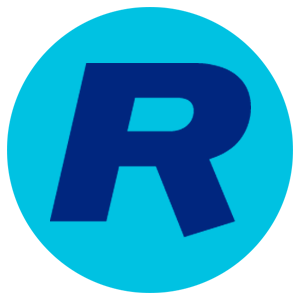- Learning
Effective Executive Coaching
Rotman School of Management offers an invaluable template for the transformation from okay coach to truly great coach
At a time of rapid change and volatility when plans and strategies need to be renewed almost every month, having a capable, trusted, motivated, and resilient team becomes essential. Whether through group sessions or individual one-to-one interaction, coaching is the most powerful, proven way leaders have to build this team. Bringing in external expert coaches—maybe to coach the C-suite—no longer cuts it. With companies looking for leadership at all levels, coaching has to be part of the management skillset across the organization.
Some take to coaching effortlessly, but many are daunted by the prospect—yet to be a successful leader or people-manager today the ability to coach effectively is clearly an indispensable tool. The first priority is to understand the ground-rules and to have a clear idea of coaching’s aims, potential, limitations, methodologies and best practices. It is important not to stumble into coaching without having this essential knowledge.
To support leaders currently coaching or those planning to take on coaching responsibilities, Professor Maja Djikic leads the Executive Coaching Certificate program at the Rotman School of Management, University of Toronto. This program is accredited by The Association for Coaching (AC) for Coaching Training and is currently seeking accreditation from the International Coaching Federation.
……………………………………………………………………………………………………………..
Dates: 21 Jan – 24 June 2023 | Format: 6-month virtual intensive
……………………………………………………………………………………………………………..
A look at some of the themes covered by Professor Djikic and her colleagues provides a valuable insight to the background knowledge coaches need to be able to effectively address personal, relational, and organizational challenges, overcome obstacles and resistance to change, cultivate agency, responsibility, and a trustworthy presence in both themselves and the people they coach.
These are just some of the topics covered:
- Change and transformation (for coach and coachees): working with motivation and mind; working with emotions and behaviour; breaking personal cycles
- Respecting ethical, legal, and professional coaching guidelines
- Establishing coaching agreements
- Maintaining coaching presence
- Cultivating trust-based relationships
- Facilitating client growth
- Coaching within the organizational context
- Embodying a coaching mindset
About the Executive Coaching Certificate program
The aim of Rotman’s Executive Coaching Certificate program is to take leaders and managers responsible for people development from being okay coaches to being truly transformative great coaches, that can make a real difference to team productivity and to individuals’ job proficiency and satisfaction—inspiring leaders, skilled in enhancing human potential and optimizing organizational performance.
Designed with the Association for Coaching, the training offered is built on the science of developmental change. An initial focus on rapid self-developmental change results in more empathetic coaching, while strengthening and deepening participants’ future coaching practice.
The program incorporates cutting edge research and models from the fields of organizational behaviour, personality and social psychology, communication, conflict resolution, and neuroscience. Completion of the program lead to a valuable widely recognized certificate.
How the Executive Coaching Certificate program is delivered
Rotman’s Executive Coaching Certificate incorporates a blended learning approach through synchronous and asynchronous learning it is delivered as real-time virtual sessions over Zoom, and also requires self-study and preparation for the accreditation. This is the level of time commitment required across six months:
60 hours of class-based executive coach training: Coaching models, theories, and practicums; virtual, 3-hour classes via Zoom
40 hours of self-study coaching assignments: Reading and reflection learning assignments; weekly progress reports and case study capstone
20 hours of coaching sessions: Coaching Rotman MBA students; mentored evaluation of AC coaching competencies
. . .
If coaching wasn’t already an essential leadership tool, in the current business climate where the news has become rather scary—rapid inflation, market turbulence, global economic instability, and a host of other challenges—it is crucial. Effective coaching can be instrumental in building personal and organizational resilience and helping navigate through difficult times.
………………………………………………………………………………………………………………
About the Executive Coaching Certificate faculty
Maja Djikic, Ph. D. is an Associate Professor of Organizational Behavior and Human Resource Management and the Director of Self-Development Laboratory at the Rotman School of Management, University of Toronto. She is a psychologist specializing in the field of personality development. Her work examines means of developing a congruent and flexible self. She has been a post-doctoral fellow with Desautels Centre for Integrative Thinking at Rotman School of Management, and Psychology Department at Harvard University. She has published more than 30 articles and book chapters in the area of personality development in journals such as Psychological Science, Journal of Research in Personality, Creativity Research Journal, New Ideas in Psychology, etc. Her research has been featured in The New York Times, Salon, Slate, The Scientific American Mind, and many other media outlets.
Michael Cullen is a Professional Certified Coach and highly experienced facilitator specializing in executive, leadership, team, and group coaching. Centered around humanistic psychology and adult development theory, his strengths-based coaching approach has served to successfully advance and effectively empower executives through complex changes, growth challenges, and career transitions. Michael has gained in-depth management and integral leadership experience in diverse global business sectors within both large and small-cap companies.
He teaches, trains, mentors, and supervises hundreds of professional coaches worldwide. Michael serves as the Canadian Regional Co-Chair for the Association for Coaching (AC) and as the Canadian Ambassador for the Association of Coaching Supervisors (AoCS), having completed the post-graduate Professional Certificate of Advanced Studies in Coaching Supervision program at Oxford Brookes University.
Rotman School of Management is Canada’s leading business school and has Canada’s largest group of management faculty. It is home to some of the most innovative research institutes in the world
ARTICLES YOU MIGHT LIKE
VIEWPOINT
For Thomas Misslin, transformation rather than training is the aim of executive education at emlyon business school
DEVELOPING LEADERS QUARTERLY MAGAZINE AND WEEKLY BRIEFING EMAILS


































